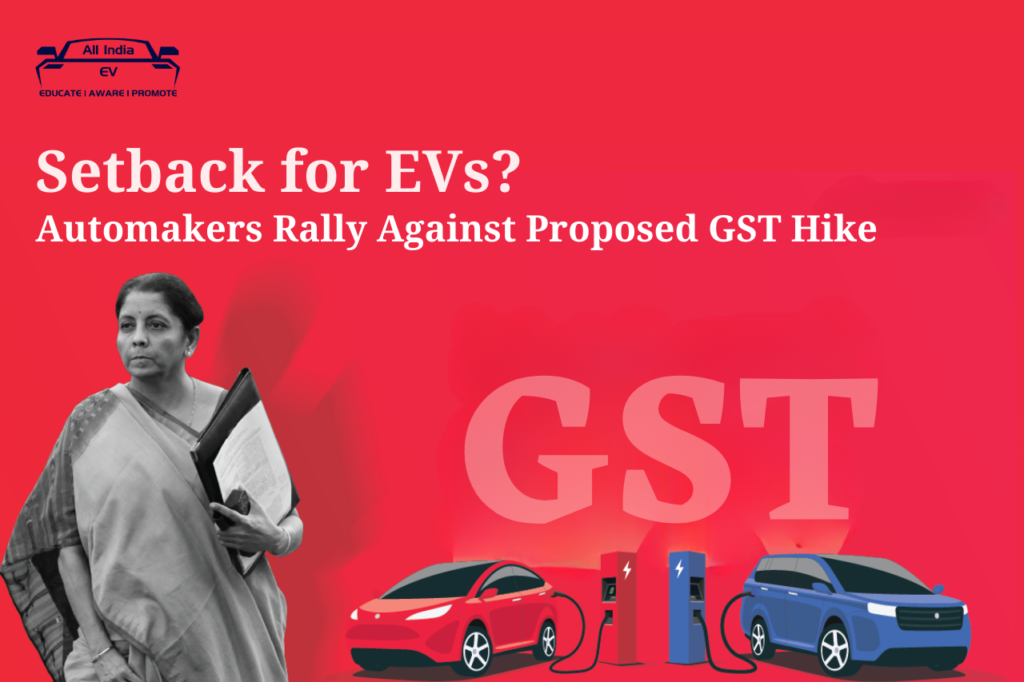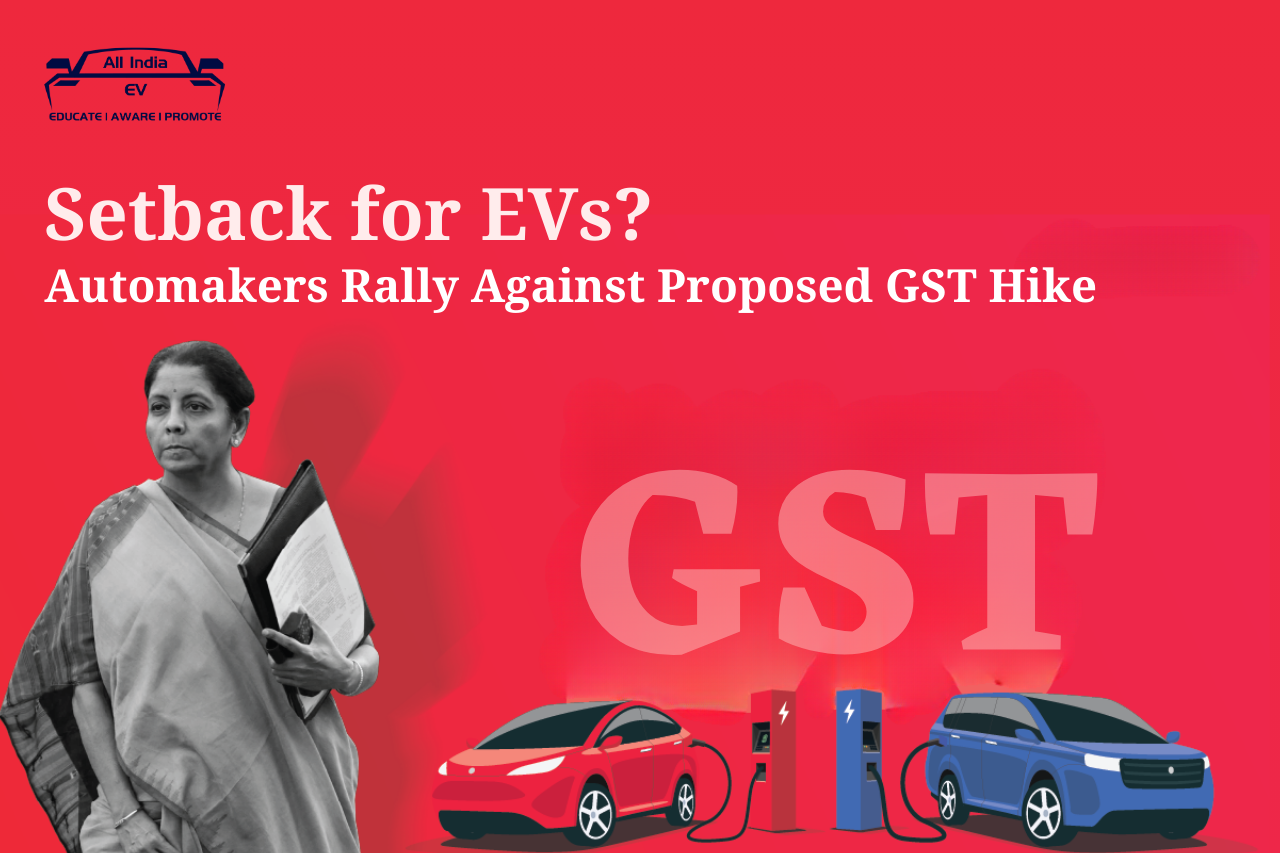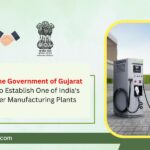
EV Makers Oppose GST Hike on Premium Models, Urge Retaining 5% Rate to Safeguard Adoption and Support India’s Clean Mobility Transition
India’s electric vehicle (EV) industry is voicing strong resistance to a proposed hike in the Goods and Services Tax (GST) on premium EVs, warning that it could derail the country’s clean mobility transition at a pivotal stage.
The GST rationalization group of ministers (GoM) has suggested increasing the tax rate on EVs priced above ₹20 lakh from 5% to 18%. While the GST Council has yet to take a final decision, even the proposal has rattled automakers, who say it is already affecting consumer sentiment.
Tata Motors’ Managing Director Shailesh Chandra underscored the sector’s progress—EVs delivering over 500 km range, a network of 24,000+ public charging points, and competitive pricing against conventional SUVs. He warned that higher taxes could undermine this momentum. “It is imperative that the 5% GST rate for EVs be retained. Any upward revision will slow India’s transition to clean mobility, dilute environmental benefits, and impact the nation’s zero-emission goals,” Chandra told The Economic Times.
Rising sales show EV momentum
India’s electric car market is expanding rapidly. In July 2025, 15,528 EV units were sold, representing a 93% year-on-year growth, according to the Federation of Automobile Dealers Associations (FADA). EVs accounted for 4.7% of total passenger vehicle sales, up from 2.4% in July 2024, highlighting growing consumer acceptance.
However, industry executives warn that the proposed tax hike could make nearly one-quarter of EVs above ₹20 lakh significantly more expensive, discouraging potential buyers.
Industry pushes for consistent policy
A Mahindra & Mahindra spokesperson said keeping GST at 5% is vital to ensure price parity with internal combustion engine (ICE) vehicles and to develop the ₹10–40 lakh EV segment, which is crucial for India’s global competitiveness in the EV space.
Anurag Mehrotra, Managing Director of JSW MG Motor India, stressed the need for predictable regulations: “To sustain EV adoption, India requires stable long-term policies, accelerated CAFE norms, and zero percent GST on fully electric vehicles. Investments in charging infrastructure and easing home charging access will also be critical.”
Premium car manufacturers have echoed similar concerns. While high-end buyers may absorb price hikes, entry-level luxury EVs are expected to face significant headwinds if the tax is raised. Mercedes-Benz India’s MD and CEO, Santosh Iyer, pointed out that the current 5% GST rate has been instrumental in building necessary sales volumes and fast-tracking battery electric vehicle (BEV) adoption.
What’s at stake
Automakers argue that raising GST now could derail years of progress. Industry leaders have collectively invested billions in local production, supply chains, and research to make EVs cost-competitive. A sudden spike in taxes, they say, could not only dampen consumer enthusiasm but also discourage further investments.
With India aspiring to become a global EV hub, industry experts stress that policy stability is non-negotiable. The coming months will be critical as the GST Council deliberates on the proposal.










